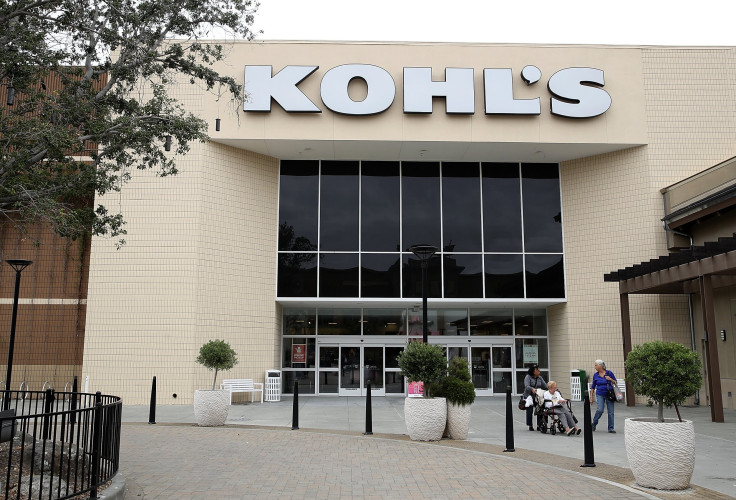Kohl's Partners Up To Exploit The Wellness Trend

With the department-store business model under threat, Kohl's (NYSE:KSS) management has shown a willingness to think outside the box in recent years.
For example, Kohl's has shrunk the size of about 500 stores, roughly half of its store fleet, and has signed leases with discount grocer Aldi to take over unneeded space in 10 of those locations. It's considering bringing in other tenants as well. Kohl's also accepts Amazon.com package returns in more than 100 stores under a partnership with the e-commerce giant first launched in late 2017.
On Tuesday, Kohl's announced its latest partnership. The department-store giant is teaming up with WW (NASDAQ:WTW) -- formerly known as Weight Watchers -- to better tap into the "wellness" trend.
What Kohl's and WW are doing
In June 2019, Kohl's will begin selling an assortment of WW Healthy Kitchen products online and in select stores. The Healthy Kitchen line includes a variety of kitchenware, cookware, and tools for meal preparation and storage -- all designed to promote healthy eating.
In addition, Kohl's will pilot an 1,800-square-foot WW studio in one of its Chicago-area stores later this year. The studio will host workshops for WW members in the area and will also have "a specially curated WW space for Kohl's customers and associates," although the details on the latter point remain sketchy. Finally, Kohl's employees will be eligible for free three-month WW Digital memberships, with other membership options being subsidized by Kohl's.
There is substantial overlap between the target customers for Kohl's and WW. As a result, both companies hope to attract new customers and grow their businesses by collaborating. Working with Kohl's may also help WW raise awareness of its new branding as it tries to transition from a weight-loss company to a wellness-focused lifestyle brand.
Another step down the road Kohl's was already traveling
The partnership with WW fits well with the strategies Kohl's was already pursuing. For one thing, management has been trying to burnish the company's wellness credentials for years. Kohl's began carrying Under Armour gear in early 2017 and has expanded its fitness tracker offerings over time.
Customers have responded well to the focus on activewear and related products. "Active" has reached approximately 20% of the company's sales mix and is still growing strongly. (In the third quarter of fiscal 2018, comp sales surged nearly 10% for the active business.) As a result, Kohl's is testing a new store format with more than 25% of its space devoted to this category and a significantly expanded assortment of activewear.
Meanwhile, the WW studio pilot project represents a new iteration of the overall strategy of boosting traffic to Kohl's stores by bringing in new uses. The concept of subdividing stores with excess space to make room for high-traffic tenants like Aldi is certainly promising, but between the need for permits and the cost of construction, it's not a quick or cheap fix. By contrast, if the WW studio succeeds in driving more traffic to the store where it is being piloted, it would be feasible to roll out that concept to many additional stores within a year or two.
Kohl's stock has room to rise
Thus far, Kohl's turnaround initiatives have stabilized sales and profitability but haven't driven a return to strong growth. Comp sales are on track to rise a little less than 2% in fiscal 2018. On the bright side, Kohl's has steadily raised its earnings-per-share guidance over the past year and now expects to deliver adjusted EPS between $5.50 and $5.55 for the full year.
However, it's important to remember that some of the company's most promising initiatives aren't paying off yet. None of the planned Aldi stores have opened so far -- and even when they do, there will only be 10 of them, whereas Kohl's has identified at least 500 stores with excess space.
Kohl's should be able to gradually fill much of this excess space over the next five years. It may find that in some cases, adding a WW studio within a store makes more sense than trying to build out a completely separate space for another retailer next door. Either way, Kohl's should see steady improvement in its traffic trends as these initiatives play out.
Today, Kohl's stock trades for about 12 times its projected fiscal 2018 EPS and is even cheaper when measured based on free cash flow. Kohl's also has a pristine balance sheet. If it can deliver steady sales and earnings growth in the coming years, Kohl's stock could rocket higher.
This article originally appeared in The Motley Fool.
John Mackey, CEO of Whole Foods Market, an Amazon subsidiary, is a member of The Motley Fool's board of directors. Adam Levine-Weinberg owns shares of Kohl's. The Motley Fool owns shares of and recommends Amazon, Under Armour (A Shares), and Under Armour (C Shares). The Motley Fool has a disclosure policy.





















